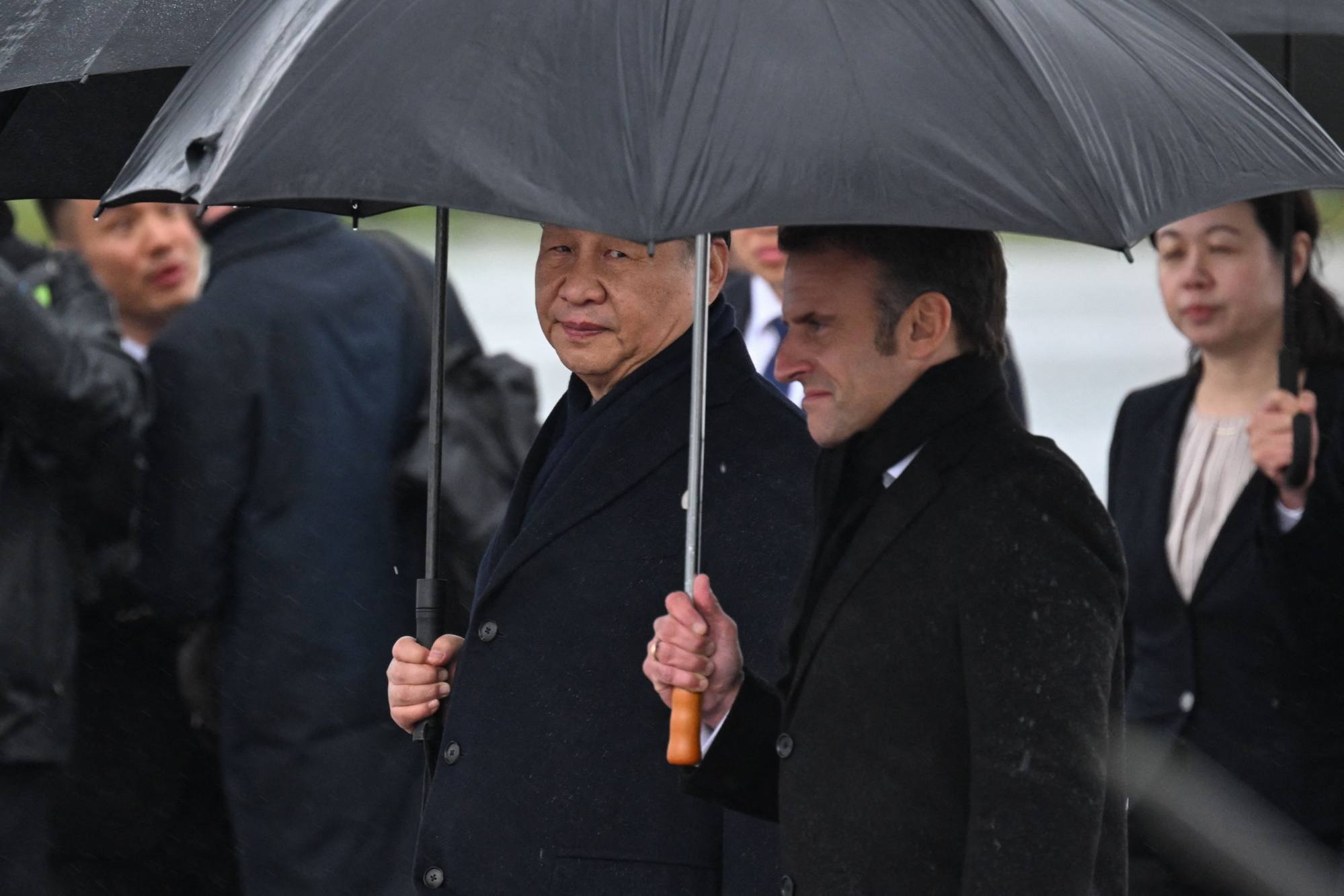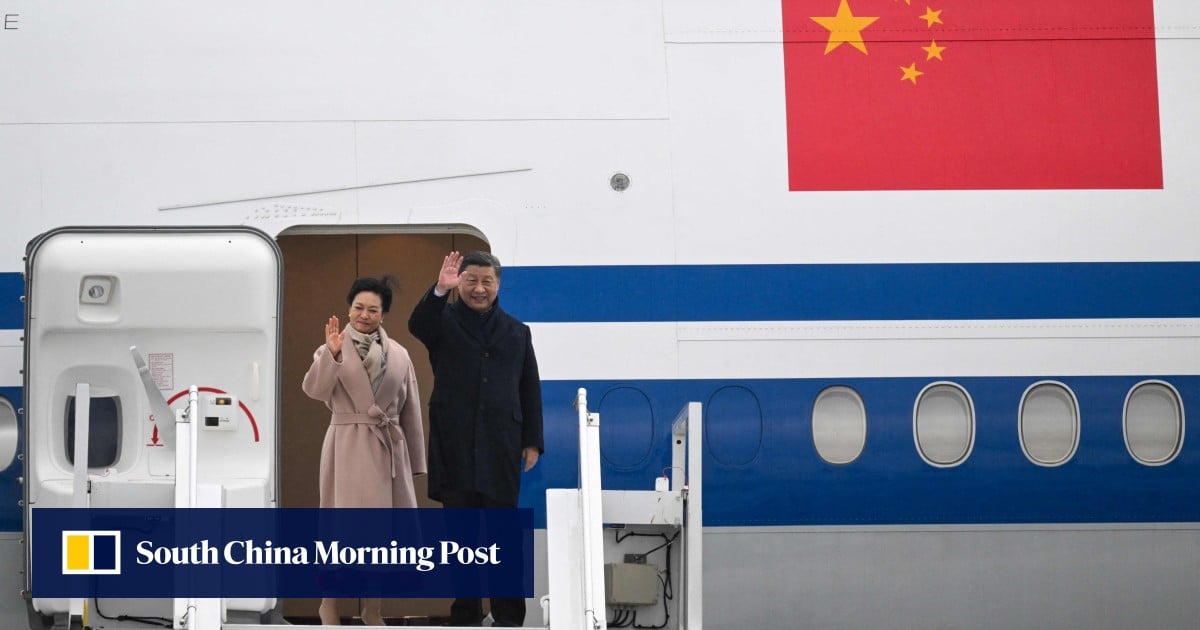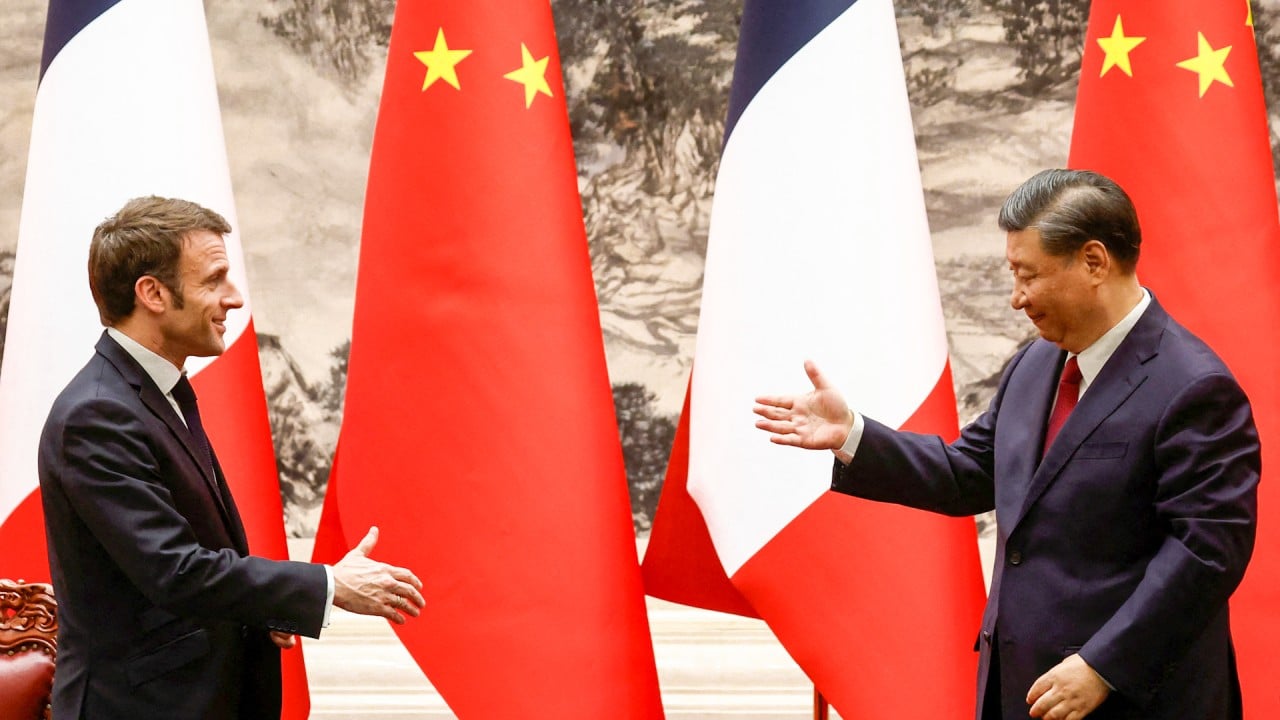Speaking after the trilateral meeting, von der Leyen, who travelled from Brussels for the meeting, admitted that “given the existential nature of the threats stemming from this war for both Ukraine and Europe, this does affect the EU-China relations”.
Xi “played an important role in de-escalating Russia’s irresponsible nuclear threats” she said, adding that she was confident that the Chinese leader would “continue to do so against the backdrop of the ongoing nuclear threats by Russia”.
“We count on China to use all its influence on Russia to end Russia’s war of aggression against Ukraine.”

Macron, meanwhile, told Xi that France and China “must maintain a close dialogue” regarding the war in Ukraine. “Without security for Ukraine there can be no security for Europe.”
“We welcome the Chinese authorities’ commitments to refrain from selling any weapons or aid,” the French leader said after a bilateral meeting with Xi in the Elysee Palace on Monday, adding that “coordination” with Beijing on “major crises” in Ukraine and the Middle East was “absolutely decisive”.
According to the readout by the Chinese foreign ministry, Xi did not break away from Beijing’s long-term positions on the Ukraine war – he told the two European leaders that a ceasefire and peace in Europe was a common desire for China, France and the European Union.
“We should work together to oppose the spillover and escalation of the war, work together to create conditions for peace talks, and work together to maintain international energy and food security, and the stability of the industrial chain and supply chain,” Xi said, adding that Beijing was willing to push for peace talks “as much as it can”.
During a joint press conference after a bilateral meeting with Macron, Xi pushed back against criticism of his country for its close ties to Russia.
“We also oppose using the Ukraine crisis to shed responsibility, or defame a third country and provoke a new cold war,” he said.
Chinese observers said Beijing’s position on the Ukraine war had not changed, but for European leaders such as Macron, who had been calling for “European security and strategic autonomy”, it was a crucial moment to decide if they wanted to pull China closer to their orbit or push it away.
Geopolitical hills to climb for Xi and Macron at the meet on Pyrenees slopes
Geopolitical hills to climb for Xi and Macron at the meet on Pyrenees slopes
Wang Yiwei, director of the Centre for European Union Studies at Renmin University in Beijing, said Europe was deeply frustrated two years ago when Beijing did not join the international chorus to condemn the Russian invasion.
“When they realised economic sanctions could not defeat Russia, they turned to blame China,” Wang said. “It is the West that has pushed Russia closer to China.”
After the meeting with Xi and Macron, von Der Leyen wrote on X, formerly known as Twitter, that “China and the EU have a shared interest in peace and security”.
Ding Chun, director of the Centre for European Studies at Shanghai’s Fudan University, said China and Europe shared some common ground regarding the Ukraine war.
“There’s a common understanding between China and Europe, especially France and Germany, about seeking a political solution to the Ukraine war,” he said. “The more the shared interests are, the more likely the two sides can work together.”
However, Helena Legarda, lead analyst at the Mercator Institute for China Studies (MERICS) in Berlin, said it remained to be seen how far the mutual desire for peace could go towards ending the war, despite their shared interests.
While the US and its European allies pressed on with economic sanctions against Russia in the hope of forcing Putin to stop the war, China continued to do robust business with Russia, hitting a record US$240 billion last year.
The flourishing trade between the two countries provided a lifeline for Russia’s economy, and Beijing showed “little willingness” to press Moscow to withdraw or to negotiate. Instead, Chinese officials repeatedly talked about China’s continued support for Russia, Legarda said.
“Europe is concerned about the ongoing war in Ukraine, and the China-Russia relationship is creating additional challenges,” she said. “And when it comes to how to end the war or what a sustainable kind of peace agreement should look like, I see a lot less common ground.”
However, Wang said Europe needed Beijing’s help to end the war.
European leaders have been calling for Beijing to take part in a peace conference in Switzerland next month. Russia has refused to join and Chinese officials have said any peace talks must involve both Russia and Ukraine.
Since the invasion in Ukraine, Putin has been boycotted by the West. At a brief speech for his fifth inauguration on Tuesday, the Russian leader said Russia “does not refuse dialogue with Western states”.
“The choice is theirs: do they intend to continue trying to contain Russia, continue the policy of aggression, continuous pressure on our country for years, or look for a path to cooperation and peace,” Putin said.
Wang said like it or not, European leaders would need to recognise Beijing’s impact on dominant global concerns such as current conflicts.
“Over issues like the Russia-Ukraine war, as well as the ongoing crisis in the Middle East, China wields considerable influence,” Wang said.


